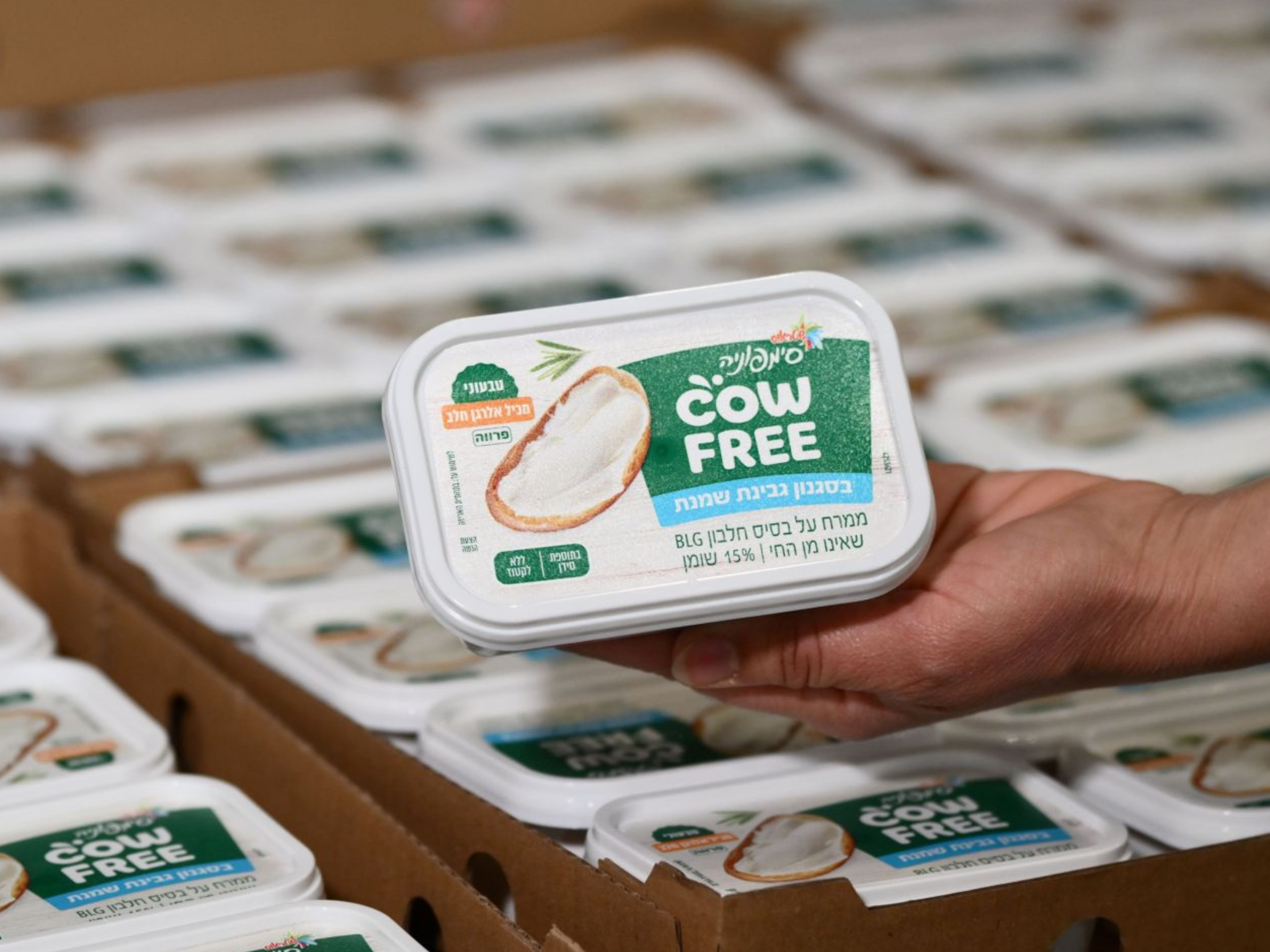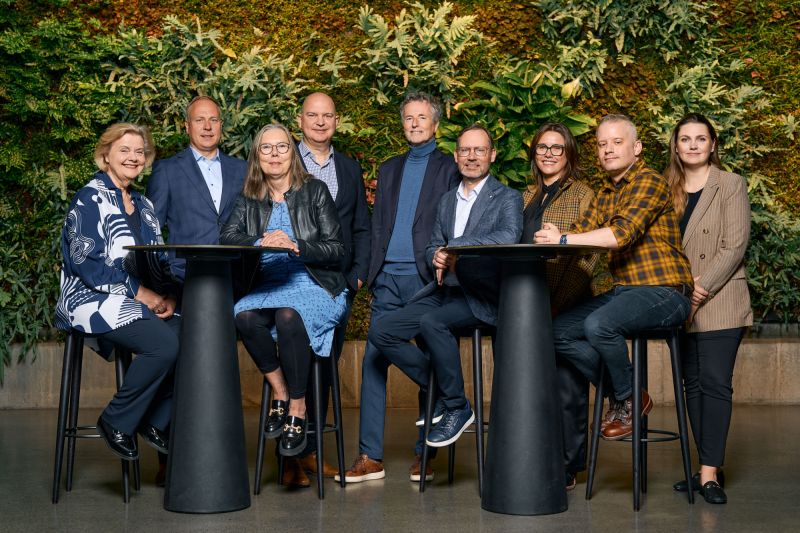

Revolutionizing food production: how plants can be an economical production method for pure, functional recombinant proteins
In getting to know all +65 speakers taking part in The Future of Protein Production LIVE!, we are exposing the future trends and solutions that will take alternative proteins from pilot to plate. Here we catch up with Björn Örvar, Co-founder, CSO & EVP of Business Development of ORF Genetics, who reveals the genesis of the Icelandic company as well as its vision to develop a novel production platform for recombinant proteins using bioengineered barley plants, how it is developing animal growth factors for cultivated meat, and the future prospects for alternative proteins
In recent years, the food industry has witnessed a growing interest in alternative proteins as a sustainable solution to meet the protein needs of an ever-expanding global population. ORF Genetics, headquartered in Iceland, is at the forefront of this revolution.

The innovative company combines genetic engineering, a robust plant system, and a new approach in protein processing to create novel, low-cost protein products at scale. Its expertise lies specifically in optimizing the production of recombinant growth factors in barley seeds, ensuring efficient and cost-effective manufacturing processes.
A recombinant protein is a protein that is produced through genetic engineering techniques by combining genetic material from different sources. It involves the manipulation of DNA sequences to introduce a gene encoding a specific protein into a host organism, such as bacteria, yeast, mammalian cells or plants. At ORF Genetics, the technology allows for the customization of protein properties, enabling the production of food-grade proteins with enhanced functionality.
“Established more than 20 years ago, we have developed a novel production platform for recombinant proteins using bioengineered barley plants,” reveals Björn Örvar, the company’s CSO & EVP of Business Development. “More specifically, we have developed a genetic engineering technology to produce different specialty proteins (recombinant proteins) in the barley seed that would then be harvested, and the protein of interest purified from the seed.
“Part of our vision was also to develop hydroponics technology to cultivate these barley plants in a geothermal greenhouse, using only sustainable energy, which is abundantly available in Iceland.
Being an experienced producer of growth factors in plants, we are also convinced that our technology and track-record is important in both scaling up and bringing down the cost of animal growth factors for the cultivated meat industry
Plant power
“We believe that plants, in general, have such an opportunity to be a very economical production method for pure, functional recombinant proteins,” adds Örvar, who will be appearing on a panel at The Future of Protein Production LIVE! to discuss how Europe can maximize its potential to be a global leader in complementary proteins.
From the outset, ORF Genetics’ focus was on growth factors as they were predominantly produced in E. coli, and had widespread application potential. By 2007, the company successfully launched the world’s first plant-made growth factors, ISOkine, which was primarily used in stem cell research and skincare applications.

“Being an experienced producer of growth factors in plants, we are also convinced that our technology and track-record is important in both scaling up and bringing down the cost of animal growth factors for the cultivated meat industry,” Örvar continues. “Therefore, we started a new project on developing a portfolio of different animal growth factors, MESOkine, and scaling up our production capacity as the cultivated meat industry continuous to grow. We believe that our technology is very adaptable to large volume, low-cost growth factor production for this industry.”
Growth factors
Growth factors, generally, are crucial in the development and production of cultivated meat, essential for stimulating cell growth, proliferation, and differentiation, ultimately leading to the production of a high-quality and nutritious product.
Cells need signals to divide and multiply, and growth factors act as signaling molecules that trigger this process. By providing the cells with appropriate growth factors, scientists can ensure the efficient and rapid expansion of the cell population, leading to higher meat yields.
During the cultivation process, cells also undergo a transformation from their initial state to specialized muscle cells, fat cells, and other cell types found in meat. Growth factors help guide this differentiation process, ensuring that cells develop into the desired cell types with specific characteristics, such as texture, taste, and nutritional content.
In addition to their role in cell proliferation and differentiation, growth factors also aid in the development of muscle tissue structure, influencing the alignment, organization, and maturation of muscle fibers, which are critical for the texture and tenderness of meat.
Plant-produced animal growth factors for cultivated meat production are a relatively new area of research and development. Traditional methods of cultivating animal cells for meat production have relied on the use of fetal bovine serum (FBS) or other animal-derived components. However, there are several concerns associated with animal-derived ingredients, including ethical considerations, variability in quality, potential contamination, and high costs.
One of the primary advantages of plant-produced animal growth factors and other plant-based ingredients is their sustainable and ethical nature. The approach eliminates the need for animal sources, reducing the environmental impact and ethical concerns associated with animal exploitation.
Plant-produced animal growth factors and ingredients such as various types of proteins, peptides, or other molecules can stimulate cell growth and differentiation. Examples that have shown promise include soy-based proteins, algae extracts, and yeast-based products.
Scaling and other challenges
As we have seen in recent months, the cultivated meat movement is accelerating, with the FDA/USDA approvals of cultivated chicken products from UPSIDE Foods and Eat Just’s GOOD Meat in the USA. But these are just two products from two companies, and will be available in limited quantities initially, likely high-end restaurants. “With MESOkine, for scaling up to much larger volumes and for bringing down costs faster, we introduced a new and simpler downstream processing technology to reach our goals,” Örvar explains.

As well as scaling, there are still technological, regulatory, and consumer acceptance challenges to overcome. Nevertheless, cultivated meat shows promise as a sustainable, ethical, and efficient way to produce meat in the future. Its successful adoption could help address many of the pressing issues associated with conventional meat production and contribute to a more sustainable and resilient food system.
We need to remind ourselves that there are many more generations to come, and they should be able to enjoy what we have today. Being responsible in food production is one aspect of this consideration
When discussing the importance of embracing such alternative proteins, Örvar stresses an overarching focus on sustainability. “Our current journey is based on disrespecting future generations, for example, as we bring down ecosystems and biodiversity that took millions of years to develop, just to be able to provide feed for raising livestock,” he continues. “We need to remind ourselves that there are many more generations to come, and they should be able to enjoy what we have today. Being responsible in food production is one aspect of this consideration.”
With the global population projected to reach 9.7 billion by 2050, traditional livestock farming practices will not be sufficient to meet the growing demand for protein. “We are not on a sustainable path when it comes to providing high-quality proteins for the ever-expanding population,” Örvar laments.
We need to have more urgency from regulatory authorities and streamlined regulatory procedures to support the development of alternative proteins. Otherwise, the progress in this field may be hindered
Challenges for alternative proteins
Identifying some of the hurdles in the way of alternative proteins potentially succeeding, Örvar says there are likely technical, regulatory, and organoleptic challenges that need to be continuously addressed. “However, being able to use state-of-the-art gene technology to improve alternative protein host producers or for improving the protein itself without slow and often lack of urgency from the regulatory authorities may turn out to be the biggest roadblock.
“We need to have more urgency from regulatory authorities and streamlined regulatory procedures to support the development of alternative proteins. Otherwise, the progress in this field may be hindered.”
Future of the industry
Considering the future of the industry, Örvar shares his thoughts on the potential of hybrid food, another topic of conversation at The Future of Protein Production LIVE!. “If we manage to focus more on hybrid food (plant/yeast proteins and other ingredients combined with animal cells such as fat), we may solve both the alternative protein products and scale-up and cost issues associated with cultivated meat,” he says.

The growth and acceptance of alternative proteins heavily rely on their ability to provide a sensory experience comparable to traditional meat products. “First of all, it is very important to develop and deliver a product that the customer is immediately satisfied with in terms of taste and texture, especially if they can compare it to the ‘traditional’ product,” Örvar says. “After that, it is all about reaching price parity.”
ORF Genetics, through its approach to plant-based production of recombinant proteins, is driving the revolution in food production. Embracing alternative proteins becomes crucial in ensuring a sustainable and responsible path for future generations. Although challenges persist, the industry is poised to see significant growth, with promising advancements in technology and collaborations. By leveraging the potential of alternative proteins, we can pave the way for a more sustainable and inclusive future in food production. As Örvar aptly concludes, “We are proud to be part of a much-needed more sustainable food production.”
• Björn Örvar is one of more than 65 speakers appearing at The Future of Protein Production LIVE!, taking place at RAI Amsterdam on 11/12 October. Click here to secure your delegate's pass and join more than 400 senior-level industry professionals to hear a fantastic agenda featuring 30 standalone presentations, take part in six engaging panel discussions, watch an exciting Startup Pitch Symposium and network with +30 exhibiting companies and other attendees
If you have any questions or would like to get in touch with us, please email info@futureofproteinproduction.com






